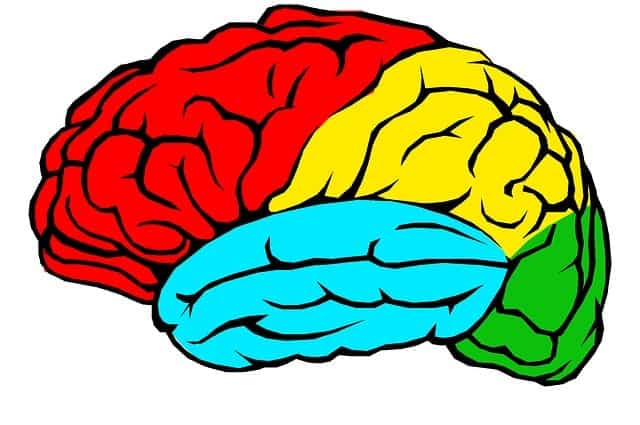The foods we consume have a profound impact on the way we feel, think, and perform. In recent years, research has increasingly highlighted the role of nutrition in brain health. Just as the heart, muscles, and bones rely on specific nutrients for peak performance, the brain also depends on certain dietary components to maintain its structure, improve cognition, and prevent cognitive decline.
Let’s explore some of the best foods to fuel your brain, enhance cognitive function, and support mental well-being. We’ll delve into why these foods are particularly effective, how they work at a molecular level, and what the research says about their benefits.
1. Fatty Fish: Omega-3 Powerhouse for Brain Health
One of the most celebrated food groups for brain health is fatty fish, such as salmon, mackerel, sardines, and trout. These fish are rich in omega-3 fatty acids, specifically docosahexaenoic acid (DHA) and eicosapentaenoic acid (EPA), which play critical roles in maintaining brain structure and function.
Why It’s Good for Your Brain:
- DHA and Brain Structure: DHA is a major structural component of the brain. It’s essential for maintaining the integrity of cell membranes, supporting neuronal signaling, and promoting synaptic plasticity—the ability of synapses to strengthen or weaken over time, which is key to learning and memory.
- EPA and Inflammation: EPA, another omega-3 fatty acid, has potent anti-inflammatory properties, which are vital because chronic inflammation can contribute to cognitive decline and neurodegenerative diseases like Alzheimer’s.
Several studies have linked omega-3 intake with improvements in cognition and mood. In fact, individuals with low levels of omega-3s have been shown to experience slower cognitive processing, memory impairments, and even an increased risk of neurodegenerative disorders.
2. Blueberries: Antioxidant-Rich Superfood
Blueberries are packed with antioxidants, including flavonoids, anthocyanins, and vitamins C and K, making them one of the most nutrient-dense foods for brain health. Their high concentration of these compounds has been linked to a range of benefits for cognitive function.
Why It’s Good for Your Brain:
- Neuroprotection: The antioxidants in blueberries help reduce oxidative stress, a major factor in brain aging and neurodegenerative diseases. Oxidative stress occurs when free radicals—unstable molecules—damage cells. The brain is particularly vulnerable to oxidative damage due to its high metabolic rate.
- Cognitive Performance: Flavonoids in blueberries have been shown to improve communication between brain cells, promote neurogenesis (the growth of new neurons), and enhance memory and learning. Several human studies have linked blueberry consumption with improved cognitive performance, particularly in older adults.
Regularly consuming blueberries may help delay brain aging and improve both short-term and long-term memory, making them an excellent addition to your diet.
3. Turmeric: The Golden Spice for Brain Health
Turmeric, a bright yellow spice commonly used in Indian and Southeast Asian cooking, has garnered attention for its potent anti-inflammatory and antioxidant properties. Curcumin, the active compound in turmeric, has been the subject of numerous studies due to its potential to improve brain health.
Why It’s Good for Your Brain:
- Anti-Inflammatory and Antioxidant Effects: Curcumin is both a powerful antioxidant and an anti-inflammatory agent, helping to protect the brain from oxidative stress and inflammation—two processes that play a significant role in neurodegeneration.
- Boosting Neurotrophic Factors: Curcumin has been shown to increase levels of brain-derived neurotrophic factor (BDNF), a growth hormone crucial for the development and survival of neurons. BDNF is associated with better cognitive function, memory retention, and mood regulation.
- Crossing the Blood-Brain Barrier: One of curcumin’s unique advantages is its ability to cross the blood-brain barrier, which allows it to directly interact with the brain and exert its beneficial effects.
While turmeric’s curcumin content is relatively low (about 3% by weight), consuming it with black pepper, which contains piperine, can enhance its absorption by up to 2,000%.
4. Dark Chocolate: A Sweet Treat for Mental Clarity
Dark chocolate, particularly varieties with high cocoa content (70% or more), is another brain-boosting food. It contains flavonoids, caffeine, and other antioxidants that can positively impact brain health.
Why It’s Good for Your Brain:
- Flavonoids and Cognition: The flavonoids in dark chocolate are known to accumulate in brain regions involved in learning and memory, such as the hippocampus. These compounds may enhance memory, improve cognitive function, and protect neurons from damage.
- Mood and Mental Fatigue: Dark chocolate can increase blood flow to the brain, leading to improved focus and alertness. It also stimulates the production of endorphins and serotonin, neurotransmitters that promote feelings of well-being and reduce mental fatigue.
Research suggests that moderate consumption of dark chocolate can boost brain function, particularly in tasks that require attention, processing speed, and working memory.
5. Leafy Greens: Nutrient-Dense Cognitive Enhancers
Leafy greens, such as spinach, kale, Swiss chard, and collard greens, are rich in a variety of nutrients that support brain health, including vitamins K, A, and C, as well as folate and beta carotene.
Why It’s Good for Your Brain:
- Vitamin K and Cognitive Decline: Leafy greens are particularly high in vitamin K, which is crucial for the formation of sphingolipids, a type of fat found in brain cells that supports cellular function. Studies have linked higher vitamin K intake with better memory and a slower rate of cognitive decline.
- Folate and Mental Health: Folate, or vitamin B9, plays an essential role in the synthesis of neurotransmitters and the regulation of mood. Low levels of folate have been associated with depression and cognitive impairment.
Regular consumption of leafy greens has been associated with slower rates of cognitive decline and may help protect against age-related neurodegenerative diseases.
6. Nuts: Nutrient-Dense Brain Boosters
Nuts, especially walnuts, almonds, and hazelnuts, are excellent sources of healthy fats, antioxidants, and vitamins that support brain health. They’re packed with vitamin E, an antioxidant that is crucial for protecting brain cells from oxidative damage.
Why It’s Good for Your Brain:
- Vitamin E and Cognitive Function: Several studies have found that higher vitamin E intake is associated with improved cognitive performance and a reduced risk of cognitive decline. Vitamin E helps to combat oxidative stress, which can harm brain cells and contribute to age-related cognitive issues.
- Healthy Fats: Walnuts, in particular, are high in omega-3 fatty acids, which are important for brain health. The fatty acids in nuts help to maintain the structure of brain cells and promote communication between neurons.
Incorporating a variety of nuts into your diet can provide sustained energy, improve focus, and support long-term brain health.
7. Pumpkin Seeds: Small but Mighty Brain-Boosters
Pumpkin seeds may be small, but they are packed with essential nutrients that are beneficial for brain health, including magnesium, iron, zinc, and copper.
Why It’s Good for Your Brain:
- Magnesium for Memory: Magnesium is critical for brain function, and low levels of this mineral have been associated with neurological conditions such as migraines, depression, and epilepsy. Adequate magnesium intake supports learning, memory, and mood regulation.
- Zinc and Communication Between Neurons: Zinc is essential for maintaining healthy communication between neurons and plays a role in the regulation of neuroplasticity. Deficiency in zinc has been linked to cognitive impairment, depression, and neurodegenerative diseases.
Pumpkin seeds are a convenient, nutrient-dense snack that can help enhance brain function and mood.
8. Eggs: Protein-Packed Cognitive Fuel
Eggs are a versatile and nutrient-dense food that is beneficial for the brain due to their high concentration of vitamins and minerals, particularly choline, B vitamins, and lutein.
Why It’s Good for Your Brain:
- Choline and Neurotransmitters: Choline is a precursor to acetylcholine, a neurotransmitter that plays a critical role in memory and learning. Adequate choline intake is associated with improved cognitive function, while deficiency may impair memory and cognitive processing.
- B Vitamins and Mental Health: Eggs are also rich in B vitamins, including B6, B12, and folic acid, which are important for mental health and the production of neurotransmitters. These vitamins help reduce levels of homocysteine, a compound associated with cognitive decline and Alzheimer’s disease.
Including eggs in your diet can support memory retention, mood regulation, and overall cognitive function.
9. Oranges: Vitamin C for Brain Protection
Oranges, along with other citrus fruits, are high in vitamin C, a potent antioxidant that supports brain health by protecting against oxidative stress and promoting the production of neurotransmitters.
Why It’s Good for Your Brain:
- Neurotransmitter Production: Vitamin C plays a key role in the production of neurotransmitters such as dopamine and serotonin, which are critical for mood regulation and cognitive function.
- Protection Against Cognitive Decline: Research has shown that people with higher vitamin C levels have a lower risk of cognitive decline, as this vitamin helps protect the brain from free radical damage and inflammation.
Eating an orange a day can provide the necessary amount of vitamin C to support brain health and protect against neurodegenerative diseases.
10. Green Tea: Mental Clarity in a Cup
Green tea has long been praised
for its health benefits, and it’s also great for the brain. It contains a mix of antioxidants, amino acids, and small amounts of caffeine that can enhance brain function and protect against cognitive decline.
Why It’s Good for Your Brain:
- L-Theanine for Relaxation: One of the key compounds in green tea is L-theanine, an amino acid that has been shown to promote relaxation without causing drowsiness. L-theanine can work synergistically with caffeine to improve brain function, increase focus, and boost mood.
- Antioxidants for Neuroprotection: Green tea is rich in polyphenols and catechins, antioxidants that can protect the brain from oxidative stress and inflammation, both of which contribute to aging and neurodegeneration.
Regular consumption of green tea may improve memory, attention, and overall cognitive performance, while also reducing the risk of developing dementia.
The foods you choose to consume on a daily basis have a direct impact on your brain’s function and longevity. Nutrient-dense options like fatty fish, blueberries, turmeric, and dark chocolate can enhance memory, improve focus, and protect your brain from age-related decline.
Incorporating these brain-boosting foods into your diet is a delicious and effective way to support cognitive health. While no single food is a magic bullet for preventing cognitive decline, a balanced, nutrient-rich diet can certainly give your brain the best chance to stay sharp and healthy well into old age.

